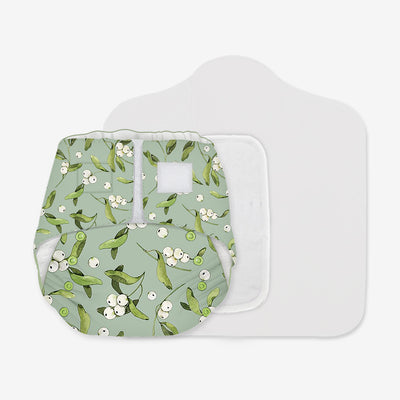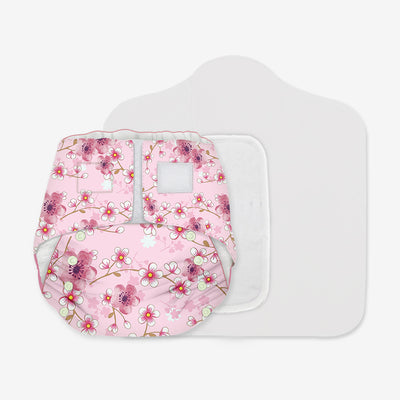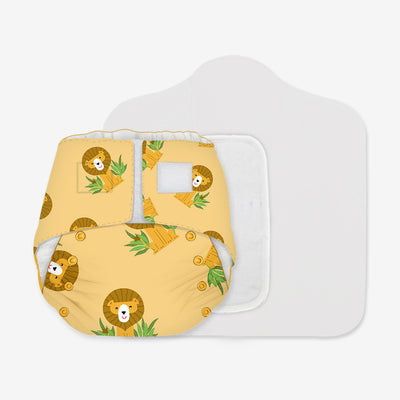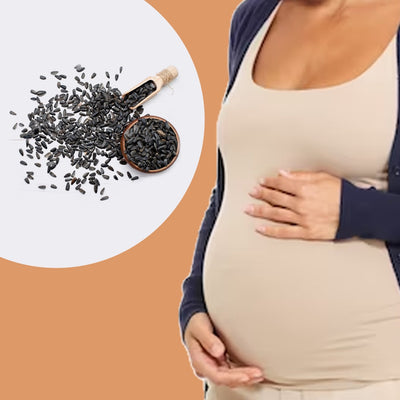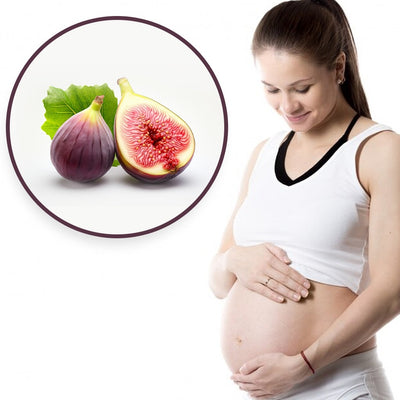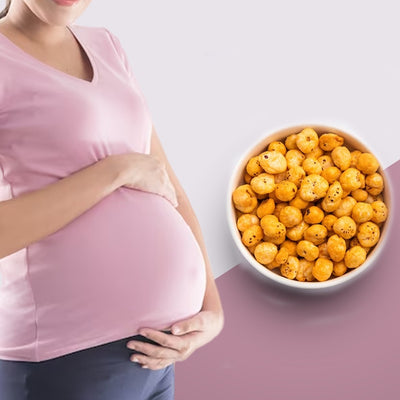The Benefits of Mushrooms During Pregnancy

Pregnancy is a transformative journey, and ensuring a healthy diet is crucial for both the mother and the developing baby. While many foods are touted as pregnancy superfoods, one often-overlooked ingredient that deserves the spotlight is mushrooms. Mushrooms are not only delicious but also packed with nutrients that can be incredibly beneficial during pregnancy. In this comprehensive guide, we will delve into the nutritional benefits of mushrooms during pregnancy, . So, let's embark on this flavorful journey of discovering the amazing advantages of incorporating mushrooms into your pregnancy diet.
Nutritional Benefits of Mushrooms During Pregnancy
1. Folate (Folic Acid): Mushrooms are a notable source of folate, also known as folic acid, which is a B-vitamin crucial for fetal development. Folate plays a pivotal role in preventing neural tube defects and other congenital abnormalities in the baby's brain and spine. Adequate folate intake is recommended before conception and during the early stages of pregnancy, making mushrooms an essential dietary addition.
2. Vitamin D: While not naturally abundant in mushrooms, some varieties, particularly those exposed to sunlight or UV radiation, can be a valuable source of vitamin D. This vitamin is essential for calcium absorption, aiding in the formation of the baby's bones and teeth. Additionally, vitamin D supports the mother's bone health during pregnancy.
3. Iron Absorption: Although mushrooms themselves are not rich in iron, they contain compounds that can enhance the absorption of iron from other foods. This is particularly beneficial because pregnant women often require more iron to prevent anemia, support oxygen transport, and promote the baby's healthy development.
4. Protein: Protein is the building block of tissues and organs, and it's crucial during pregnancy when the baby is growing rapidly. Mushrooms are a notable source of plant-based protein, making them an excellent choice for vegetarian and vegan mothers who may have fewer protein options in their diet.
5. Low Calories and Fat: Maintaining a healthy weight during pregnancy is essential, and mushrooms can help in this regard. They are low in calories and fat, allowing mothers to manage their weight without compromising on essential nutrients.
6. Antioxidants: Mushrooms are rich in antioxidants, such as selenium and ergothioneine.These chemicals support cell protection against oxidative stress and free radical damage.. During pregnancy, this can contribute to overall health and well-being.
7. Dietary Fiber: Constipation is a common issue during pregnancy, and the fiber content in mushrooms can help regulate bowel movements and alleviate this discomfort. A healthy digestive system is vital for the well-being of both the mother and the baby.
Important Nutrients Found in Mushrooms
B Vitamins: Mushrooms are a rich source of various B vitamins, which play vital roles in the body's metabolic processes. Riboflavin (B2) supports energy production, while niacin (B3) aids in DNA repair and skin health. Pantothenic acid (B5) is crucial for synthesizing fatty acids and cholesterol. Additionally, vitamin B6, or pyridoxine, found in mushrooms, is essential for brain development and function in both the mother and the developing baby.
Minerals: While iron in mushrooms may not be as abundant as in red meat, it still contributes to overall iron intake. Iron is necessary for preventing anemia during pregnancy, as it supports the production of red blood cells that transport oxygen to the baby.
Fiber: The fiber content in mushrooms is often overlooked but is nonetheless important during pregnancy. Fiber aids in digestion and helps prevent constipation, a common issue for pregnant women due to hormonal changes.
Beta-Glucans: Some mushroom varieties, such as shiitake and maitake, contain beta-glucans, which have immune-boosting properties. Beta-glucans stimulate the activity of white blood cells and enhance the body's ability to defend against infections.
Potassium: Potassium is vital for maintaining electrolyte balance and regulating blood pressure. Including mushrooms in your diet can help support healthy blood pressure levels during pregnancy, reducing the risk of complications.
Selenium: Mushrooms are an excellent source of selenium, a trace mineral with antioxidant properties. Selenium helps protect cells from oxidative damage, which can be particularly beneficial during the oxidative stress of pregnancy.
Ergothioneine: This unique antioxidant, found abundantly in mushrooms, is known for its ability to protect cells from damage caused by free radicals. Ergothioneine may contribute to overall health and well-being during pregnancy.
Vitamin D: When exposed to sunlight or UV radiation, mushrooms naturally produce vitamin D. This nutrient is essential for calcium absorption and bone health, both critical for the developing baby's skeletal system.
Choline: Although present in smaller amounts, mushrooms contain choline, an essential nutrient for brain development and function. Choline plays a role in the formation of the neural tube and can help prevent neural tube defects.
How Mushrooms Support a Healthy Pregnancy
Nutrient Density: Mushrooms are nutrient-dense, packing a wide array of vitamins and minerals into a small package. This is especially advantageous during pregnancy when nutrient needs are heightened. Their rich content of B vitamins, including riboflavin, niacin, and pantothenic acid, is particularly beneficial. These vitamins are essential for energy metabolism, cellular growth, and overall health, ensuring the mother has the vitality needed to nurture her growing baby.
Immune System Fortification: A robust immune system is essential for pregnant women to fend off infections and illnesses. Mushrooms, particularly varieties like shiitake and maitake, contain beta-glucans, polysaccharides that stimulate the immune system. By enhancing the body's ability to fight off pathogens, mushrooms help ensure the health of both the mother and the developing fetus.
Gestational Diabetes Management: Managing blood sugar levels is critical during pregnancy, especially for women with gestational diabetes. The beta-glucans found in some mushrooms can assist in regulating blood sugar levels, offering a natural and wholesome approach to diabetes management.
Reducing the Risk of Birth Defects: Folate, also known as folic acid, is a key nutrient in preventing neural tube defects and other birth abnormalities. Mushrooms contain folate, adding to the overall folate intake needed during pregnancy.
Digestive Health: Pregnancy often comes with digestive challenges like constipation. The fiber in mushrooms aids digestion, helping to alleviate this common issue. A healthy digestive system ensures that nutrients are efficiently absorbed, benefiting both mother and baby.
Blood Pressure Regulation: Potassium, another essential nutrient found in mushrooms, plays a vital role in regulating blood pressure. Maintaining healthy blood pressure levels during pregnancy reduces the risk of complications such as preeclampsia, benefiting the mother's overall well-being.
Antioxidant Protection: Mushrooms are rich in antioxidants, including selenium and ergothioneine, which help protect cells from oxidative stress. This antioxidant protection not only supports the mother's health but also shields the developing baby from potential harm caused by free radicals.
Safety Considerations When Consuming Mushrooms During Pregnancy
While mushrooms are generally safe to include in your pregnancy diet, it's essential to be mindful of some specific safety considerations to ensure the well-being of both you and your developing baby. Here, we'll delve deeper into these precautions to help you make informed choices when enjoying mushrooms during pregnancy.
Cook Thoroughly: Pregnant women should always consume mushrooms that have been thoroughly cooked. Cooking mushrooms at a high temperature not only enhances their flavor but also destroys any potential bacteria, parasites, or harmful compounds that may be present. Avoid eating raw or undercooked mushrooms in salads or other dishes.
Choose Commercial Varieties: Stick to commercially cultivated mushrooms like white button, cremini, or shiitake. These varieties are generally considered safe and are less likely to cause adverse reactions. Avoid consuming wild mushrooms, as they can vary widely in terms of safety, and some are toxic.
Portion Control: While mushrooms are nutritious, it's important not to overindulge. During pregnancy, moderation is crucial with all foods. Excessive consumption of mushrooms may lead to imbalances in your diet.
Allergy and Sensitivities: Some people may be sensitive or allergic to particular kinds of mushrooms. If you have a known allergy or experience any unusual symptoms like hives, itching, or digestive discomfort after consuming mushrooms, consult your healthcare provider immediately.
Consult Your Healthcare Provider: If you have any concerns about including mushrooms in your pregnancy diet, it's a good idea to consult your healthcare provider or a registered dietitian. They can offer you individualized advice based on your particular dietary and health requirements.
Avoid Unfamiliar Varieties: It's crucial to be cautious when trying new or exotic mushroom varieties during pregnancy. While many of these mushrooms are safe to eat, their safety can vary, and it's best to wait until after pregnancy to experiment with unfamiliar types.
How to Include Mushrooms in a Healthy Pregnancy Diet
Variety is Key: To reap the full spectrum of benefits that mushrooms offer, consider diversifying the types of mushrooms you consume. Common varieties like button, cremini, and shiitake can be found in most grocery stores and can be used in a wide range of recipes. Each type offers a slightly different nutritional profile, adding depth to your diet.
Blend with Meat: If you're not a vegetarian or vegan, consider blending finely chopped mushrooms with ground meat (beef, turkey, or chicken) when making dishes like meatballs, burgers, or meatloaf. This not only enhances the flavor but also reduces the overall meat content, making your meals lighter and more nutritious.
Mushroom Soups: Soups are an excellent way to incorporate mushrooms into your diet. Creamy mushroom soup or a hearty vegetable soup with sliced mushrooms can provide a comforting and nutrient-rich option.
Stir-Fries and Stir-Fry Sauces: Add sliced mushrooms to stir-fries along with an array of colorful vegetables. Create flavorful stir-fry sauces with ingredients like ginger, garlic, soy sauce, and a touch of sesame oil to infuse your dishes with robust flavors.
Mushroom-Based Gravies: Prepare mushroom-based gravies to serve over lean proteins like chicken or tofu. The umami-rich flavor of mushrooms can elevate the taste of your meals while providing extra nutrients.
Mushroom Omelettes: As mentioned earlier, mushroom and spinach omelettes are a delicious and nutritious breakfast option. The protein from eggs combined with the vitamins and minerals in mushrooms can kickstart your day.
Salads: Freshen up your salads with sautéed or roasted mushrooms. They pair wonderfully with leafy greens, cherry tomatoes, and a balsamic vinaigrette dressing.
Mushroom-Based Pasta Sauces: Blend mushrooms into pasta sauces for an earthy richness. You can combine them with tomatoes, onions, and herbs for a satisfying pasta dish.
Mushroom Toppings: Add sliced, sautéed mushrooms as a topping for pizzas or baked potatoes. This provides a textural contrast and an umami burst of flavor.
Mushroom Snacks: Consider snacking on dried or roasted mushrooms for a savory and nutrient-packed treat.
Mushrooms are a versatile and nutritious addition to any diet, but they hold particular promise for pregnant women. Their abundance of essential nutrients, immune-boosting properties, and overall health benefits make them an ideal choice for supporting a healthy pregnancy. When consumed safely and in moderation, mushrooms can contribute to the well-being of both mother and baby.





